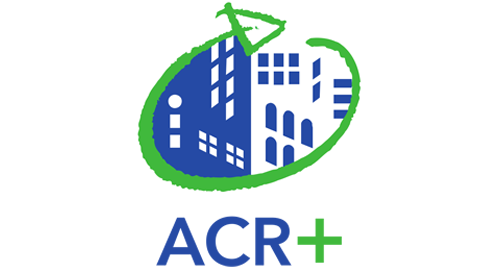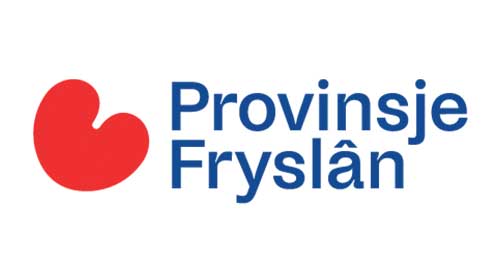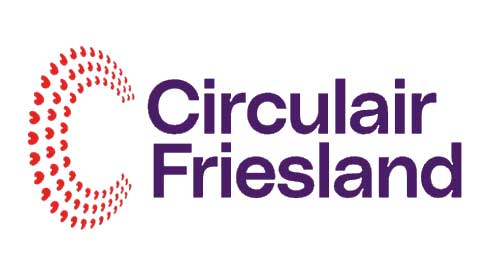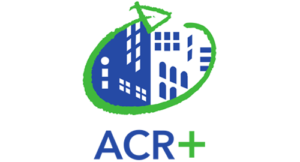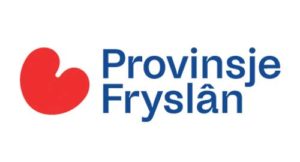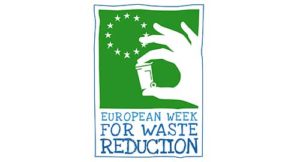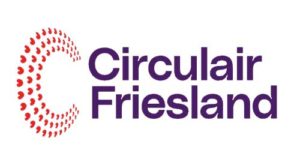Abstracts
Circular Summit Fryslân 2025
10 – 12 June, Leeuwarden
Abstracts poster presentations
Abstract | FOLOU project
Each year, a substantial amount of food loss is generated at the primary production stage. The European Commission has made progress in tackling food loss and waste, but significant challenges remain. Regulatory, technical and social barriers constrain reduction efforts, particularly at the primary production stage where measuring food loss is complex and costly. The European project FOLOU aims to set up all the necessary mechanisms to (i) measure and estimate, (ii) monitor and report and (iii) assess the magnitude and impact of food losses, while assuring the appropriate adoption of the project outcomes by the key targeted stakeholders (primary producers, policy makers and researchers). The project is developing a harmonised and cost-effective methodology to measure and estimate food losses, and it is being validated in different case studies for the main EU commodity sectors. This information will later be incorporated in a food loss registry to monitor and report those losses at distinct territorial levels. FOLOU is also developing and testing 6 innovative tools to measure food losses in a more straightforward way: UAVs, satellite images, blockchain, tractor embedded cameras, multispectral cameras and market demand tool from social networks.
Identifying gaps in human-scale implementation of the circular economy at the local level in Latvia
Erika Lagzdina
University of Latvia, Riga, Latvia
erika.lagzdina@lu.lv
This study investigates the challenges of implementing the circular economy (CE) at the local level in Latvia, where national and EU policies support the transition to circular practices, yet practical application remains fragmented. Through qualitative case study research in three waste management regions, encompassing both central and peripheral municipalities, the study explores the dynamics of socially sustainable CE implementation in Latvia. Two major reforms have significantly shaped the context for circular transitions. The 2021 administrative territorial reform significantly reduced the number of municipalities and the 2023 reform streamlined coordination of waste sector management by establishing regional waste management centers. Despite these reforms, economic and territorial disparities persist.Peripheral communities frequently feel excluded from both resource distribution and decision-making. In municipalities, circularity remains a secondary concern, overshadowed by social and economic challenges. While local innovations such as repair workshops, reuse centers, and co-creation labs show potential, they remain limited in scale and lack institutional pathways for broader adoption. Public surveys reveal interest in circular services, but uneven uptake threatens the cultural shift needed for systemic change. The study reveals that while policy frameworks support the transition to a circular economy, their local-level implementation remains uneven. A key gap lies in the neglect of human-scale
development principles – those that prioritize local needs, community engagement, and social well-being. Technological and infrastructure-driven approaches dominate current strategies, often sidelining the social dimensions essential for inclusive and sustainable circular transitions. Limited institutional capacity, fragmented governance, and the absence of mechanisms for scaling local innovations further hinder progress. Addressing these gaps requires greater integration of community priorities into CE governance, improved coordination across governance levels, collaboration, and stronger support for context-specific, socially grounded practices. The research is financed by the Recovery and Resilience Facility project “Internal and
External Consolidation of the University of Latvia” No.5.2.1.1.i.0/2/24/I/CFLA/007.
Abstract | Co-composting of dried and shredded household food waste with prunings in the Municipality of Halandri
- Papadopoulou1, C. Lytras1, G. Lytras1, E. Melanitou2, V. Christouli2, S. Niakas2 and G.Lyberatos1, 2
1School of Chemical Engineering, National Technical University of Athens, 9 Iroon Polytechneiou, Zografou, 15780,
2Municipality of Halandri, 30 Agiou Georgiou & Aristidou 15234, Chalandri, Greece
This study investigates an innovative municipal solid waste management approach implemented in the Municipality of Halandri, implemented in a HORIZON2020 project (WASTE4THINK), focusing on the co-composting of source-sorted household food waste and prunings. The proposed method involves transformation of household food waste into an intermediate biomass product named FORBI (Food Residue Biomass) through drying and shredding. FORBI exhibits significant practical advantages: reduced moisture content, absence of odor, homogeneity, and extended storage capability without deterioration, while FORBI corresponds to approximately 1/4 the weight of the original biowaste. Most importantly, FORBI may be used to produce compost as well as biofuels and other added value products.
A pilot-scale (4 tons) windrow composting process was carried out, by using FORBI and prunings (1:1) as feedstock. Composting was completed in only 40 days. The co-composting process leverages FORBI as a compost enhancer, significantly accelerating composting of green waste. The resulting compost is a high-quality soil amendment.
Citizen engagement played a key role in the project’s success, with the deployment of 30L biodegradable bags and 120L collection bins to support source-separation at the household level. The produced compost was distributed in packaged form to the community, completing a sustainable loop of local waste reuse and reinforcing environmental awareness.
The findings suggest that the FORBI-based system is a scalable, cost-effective, and environmentally beneficial model for urban organic waste management. The successful implementation in Halandri provides a replicable blueprint for other municipalities aiming to enhance composting practices and promote circular economy principles.
Abstract | Fryslân Builds Circular
The “Fryslân Builds Circular” programme (2023–2026) is a regional initiative aimed at accelerating the transition to a circular and biobased construction sector in the province of Fryslân, the Netherlands. By embedding sustainability throughout the construction chain—from raw materials to design and demolition—the programme positions Fryslân as a leading circular region in Europe. The programme is structured around five key action lines:
1.
Stimulating circular demand, by supporting public and private clients with knowledge exchange, peer learning, and the supervision of over 40 construction projects, including five large-scale impact initiatives;
2.
Strengthening supply, by building regional biobased and reuse chains,fostering innovation, and supporting new product development through initiatives like CIRCO tracks;
3.
Establishing The New Normal, by defining and applying circular construction standards adapted to the Frisian context, with input from expert groups and design;
4.
Building the future, by connecting vocational and higher education with industry to foster new skills and talent for circular construction;
5.
Enabling governance, by aligning local policy and regulation with national and European frameworks, and identifying legal and financial barriers to innovation. The programme follows a triple helix model—uniting governments, companies and knowledge institutions—to build strong regional value chains, reduce CO₂ emissions, promote reuse, and enhance economic resilience. Key material flows include biobased crops such as hemp, flax, and miscanthus, while circular plastics and water technology also play an important role. With its collaborative and practical approach, “Fryslân Builds Circular” not only accelerates regional transformation, but also provides a scalable blueprint for other regions seeking to transition to a circular built environment.
Abstract | The CISUTAC project
The CISUTAC project aims to remove current bottlenecks in order to increase textile circularity in Europe. The objective is to minimise the sector’s total environmental impact by developing sustainable, novel, and inclusive large-scale European value chains. In particular, 3 short closing loops pilots are being developed together with a mix of awareness raising activities and policy briefs to advocate for a circular vision for the textile sector.
Short closing loops will be developed, in 3 pilots on:
- Repair and disassembly: via semi-automated workstations, as a service in both for profit and non profit environment
- Sorting: for higher value in reuse and recycling using software that will be able to prompt the operator with valuable information
- Circular garments: via ‘fibre-to-fibre’ recycling of polyester and cotton, and design for circularity
CISUTAC also built a scenario for circular textile & clothing transition based on analysis of infrastructure needs, and of material and postconsumer textile flows. In addition, CISUTAC partners work on creating an open data standard for digital information access along the textile value chain (including harmonisation of vocabulary and formats). The Consortium also designs circular guidelines for the product teams in the sportswear, workwear and fashion. In addition, CISUTAC provides input for policy, standardisation and certification to facilitate the transition to a circular economy.
In order to understand the motivations and opportunities of consumers, behaviour studies are performed in Antwerp, Belgium, in cooperation with partners’ shops. These will help design different business models with a focus on reuse & repair, and guidelines for local applications of circularity. Finally, CISUTAC defines processes for sustainability assessment, performs different type of life cycle assessment, and liaises with other EU projects to assure interaction and knowledge exchange. CISUTAC has been the initiator of the ECOSYSTEX, the European Community of Practice for a Sustainable Textile Ecosystem, gathering more than 50 Eu funded projects.
Abstract | Interreg Europe project – Circular Minds
The Circular Minds project, officially titled Circular Mindset for Change, is an Interreg Europe project running from April 2024 to June 2028. With a budget of €2.25 million, it brings together 10 partners from 9 European countries to embed circular economy principles into regional governance and public procurement practices.Recognizing that circular economy is a global transition requiring local implementation, Circular Minds aims to address the challenges organizations face in adopting circular procurement. While pilot projects often demonstrate potential, they frequently fall short due to difficulties in organizational implementation. By adapting governance structures to align with circular principles, the project seeks to stimulate job creation in value chains and among suppliers of goods and services. The project emphasizes interregional exchange and learning through thematic workshops and study visits. Partners will explore areas such as supply chain management, internal commitment to solutions, and stakeholder involvement. These activities aim to identify current solutions and indicators for successful organizational change, leading to the design and monitoring of policy improvements and the development of governance-related solutions. A key component of Circular Minds is the Mindset Indicators Assessment Framework, which helps organizations assess their readiness for change by evaluating motivation, capacity, and ability. This tool supports the scaling up of circular practices throughout the procurement cycle by providing a clear picture of an organization’s willingness to change from organizational, regulatory, and cultural perspectives. By fostering a shift in mindset and building capacity among public authorities and local stakeholders, Circular Minds aims to reduce resource consumption, minimize waste, and promote sustainable material use. Through collaboration and the exchange of good practices, the project enables both advanced and emerging regions to adopt tailored circular solutions, contributing to better resource management and environmental health.
For more information, visit the Circular Minds project page
Summary of our project: Together with Circulair Friesland, Antea Group, Centric, Municipalities of Leeuwarden, Súdwest- Fryslân and Noardeast-Fryslân we developed an innovative platform for exchanging building materials, propelling us towards a circular economy. The platform matches reusable supply and demand, creating a new workflow for governments to design projects according to circular standards. How the project works This regional collaboration exemplifies the Frisian circularity model. All parties, member of the Circulair Friesland association, faced a common challenge: inefficient material use. In 2023, we embarked on a co-creation journey. Antea Group and Centric led this initiative with their software innovation, the ReSource platform – a marketplace for materials. The Municipalities began by, in the first step, visualizing their available materials from public space projects by uploading them to the platform. Next, urban planners were involved to identify demand, leading to the third step: used material matches. Impacaterial matches significantly reduce costs, CO2 -emissions, and resources. We shorten transport distances and supply chains by operating on three levels:Internal Level: Materials are exchanged within a single organization, improving inter- departmental communication. The physical hub is now digital, functioning like an IKEA warehouse for the organization.Collaboration Level: Materials are exchanged between governmental organizations, increasing the volume of supply and demand.Public Level: Contractors and other private parties are involved, further expanding the volume of supply and demand Scaling up An increasing number of governments in Friesland are joining the platform, thereby expanding our impact. The platform improves through practical application and iterative enhancements. An application has been developed, and a working standard for governments has been established. The method created is considered applicable to other European countries. The project also aims to facilitate the exchange of knowledge, best practices, and lessons learned, guiding all involved parties
Abstract | Graduation Research Masters Design Driven Innovation
by Feline van Hettema & Fetze Pijlman
Redefining Success: Activating Student Agency for Sustainability in Economically Driven Contexts
Within a system where profit and efficiency dominate, students often perceive sustainability as abstract, political, or secondary. Yet this practice-oriented design research shows that students do possess intrinsic motivation—provided it is engaged in a personal, safe, and reflective way. The central question is: How can economically driven students be prompted to think ahead and act sustainably despite social pressure and performance metrics? Using the Design Research Framework (Kuipers, 2024), iterative cycles explored how students relate to sustainability and how they can be activated. Interventions such as extreme-scenario exercises, cultural probes, mirror installations, and the REclaim (y)our Success toolkit revealed clashes between personal values and societal norms. Precisely within these tensions, space emerges for reflection, ownership, and behaviour change. Grounded in CHAT (Engeström, 1987), Self-Determination Theory (Deci & Ryan, 1985), leverage points (Meadows, 2008), and Stoknes’ climate-communication insights (2015), the interventions deliberately engaged the students’ social context. Backcasting enabled participants to reason back from envisioned futures to concrete actions, while circularity provided a tangible lens for systems thinking and resource loops. Reflective tasks, personal to-do lists, and conversations with one’s future self helped students redefine success and reconsider their role in a sustainable economy. Conducted in collaboration with NHL Stenden’s Green Office, the study underscores the importance of repetition, contextual depth, and dialogue—alongside genuine student ownership. Rather than a fixed format, the toolkit functions as an invitation to conversation, imagination, and shared meaning-making. In that flexibility lies its strength.
Abstract | Inorganic waste from industrial processes
Inorganic waste from industrial processes and the construction sector are particularly difficult to manage. Currently, this type of waste, as well as inert industrial waste, is generally sent to landfills and/or transported long distances for management. Different actors across Europe are working to reduce and recover inert waste, applying the principles of circular economy. However, ensuring quality guarantees to this type of waste and standardizing its use is a challenge.
INERTWASTE will focus on the valorisation of inert and inorganic waste from industrial and construction processes, aiming at extending the life cycle of resources, reducing the extraction of raw materials, and avoiding environmental impacts.
INERTWASTE will contribute to a more effective implementation of environmental policy instruments through the exchange of European regional experiences and the discussion of ideas for resolving current policy challenges. In particular, the exchange will foster business synergies contributing to the generation of by-products for reintroduction in industrial and construction processes, as well as to the improvement of policies to remove legal barriers. INERTWASTE ́s consortium is composed by 5 partners and 1 advisory partner: Four local and regional authorities in charge of waste management in Spain, Slovenia, France and Denmark One public institution that gives technical support in waste management and circular economy to the regional and local authority of Navarra (ES) and private entities One advisory partner: the Association of Cities and Regions for Sustainable Resource Management (ACR+) Some of the outcomes from the INERTWASTE project: A Good Practices guide with at least 16 successful initiatives in sustainable management of industrial and construction and demolition waste A Policy Report on future scenarios for sustainable management of inert and inorganic waste in 2026 An international online event about future scenarios for sustainable management of inert and inorganic waste in 2025-2026 A final conference in 2027
Abstract | DECISO: Developing Financing Schemes for Circular Economy Solutions
The transition to a circular economy requires not only innovative solutions but also viable financing mechanisms. The DECISO project (DEvelopers ofCIrcular SOlutions) addresses this critical gap by supporting European cities and regions in developing financing schemes for circular economy initiatives across multiple sectors. DECISO employs an ecosystem approach to explore how circular economy business plans can be tailored to different geographical, economic, natural, and social environments. The project has successfully developed four pilot initiatives across Europe: the Pop-Up Circular Hub in Hamburg focusing on strategic financing frameworks, the DISCO Project for digital water management and rainwater optimization in Northwest Germany, biomass utilization for energy in Western Macedonia supporting decarbonization and post-lignite transition, and the Circular Agrifood Ecosystem in Alentejo developing innovative business models. Through stakeholder engagement along value chains, DECISO facilitates the development of robust business plans that attract investors and gain community support. The project takes a systematic approach by analyzing existing conditions, engaging key stakeholders, developing tailored technical solutions through Project Development Assistance (PDA), and defining specific financing schemes with appropriate risk management strategies. As DECISO moves toward its exploitation phase, it aims to establish guidelines for financing schemes that other European cities and regions can implement for their circular economy initiatives.
Abstract | The European Circular Innovation Valley (ECIV)
The European Circular Innovation Valley (ECIV) is a pioneering five – year (2024 – 2025) project designed to accelerate the transition to a circular economy across Europe. The project aims to drive innovation and transform local value chains to become more circular and interconnected. The core mission of ECIV is to create a collaborative platform or “dance floor” for innovation, where interconnected agents — businesses, govern ments, and research institutions — can work together to find and implement circular solutions. ECIV emphasizes cross – border collaboration, mobilizing local businesses and territories to address shared challenges through joint innovation.Project objectives and milestones To mobilize, dynamize and connect 13 territorial circular innovation ecosystems.To increase innovation knowledge and capabilities of the regions. To generate common knowledge assets and regional policies and strategies related to circularity. To increase the innovation activity and foster innovation and experimentation in circular industrial value chains. To mobilise public funding and private investment for innovation in circularity .
Budget:
ECIV has a total budget of €27.16 million, with 50% of the funding (€13.58 million) provided by the EU. The project will dedicate 60% of its budget to Open calls (TRL 6- 7) : 16,3 Million € of public funding. Innovation actors mobilised in the dance floor 13 regions from 9 countries and +25 regional or national
innovation or economic development authorities
+1200 companies (incl. SMEs)
+100 universities and research institutions
+50 clusters and associations
Sectors and challenges:
- Agrifood, automotive, construction, textile, machinery, biotech/chemistry, energy, water
- Plastic: recycling, packaging, biobased materials
- Eco – design, recycling and waste valorisation
- Industrial symbiosis
- Remanufacturing
- Metals and critical raw materials recovering
- Scale up solutions
For more information: www.eciv.eu
Contact: eciv@sodena.com
Project No. 101161155. Funded by Horizon Europe under the European Innovation Ecosystems programme.

